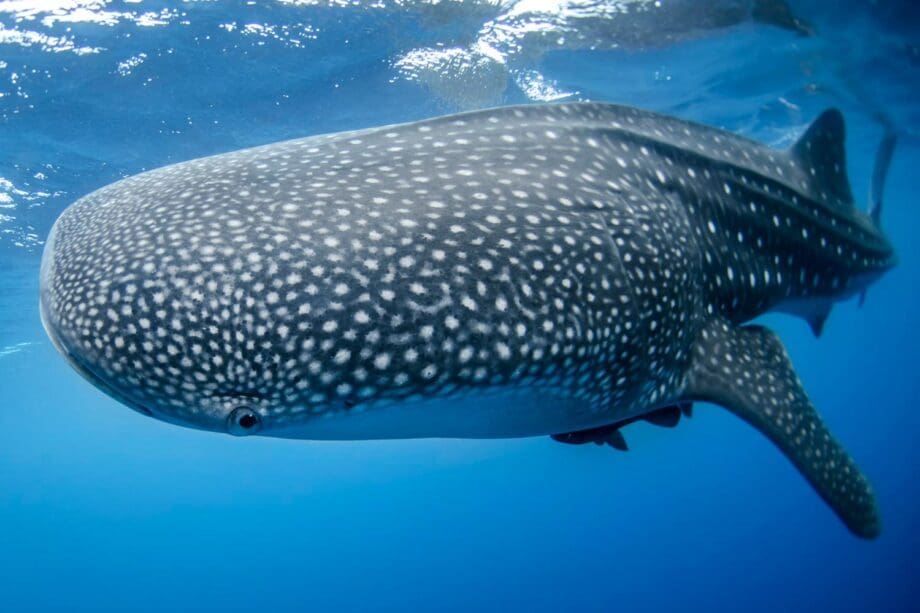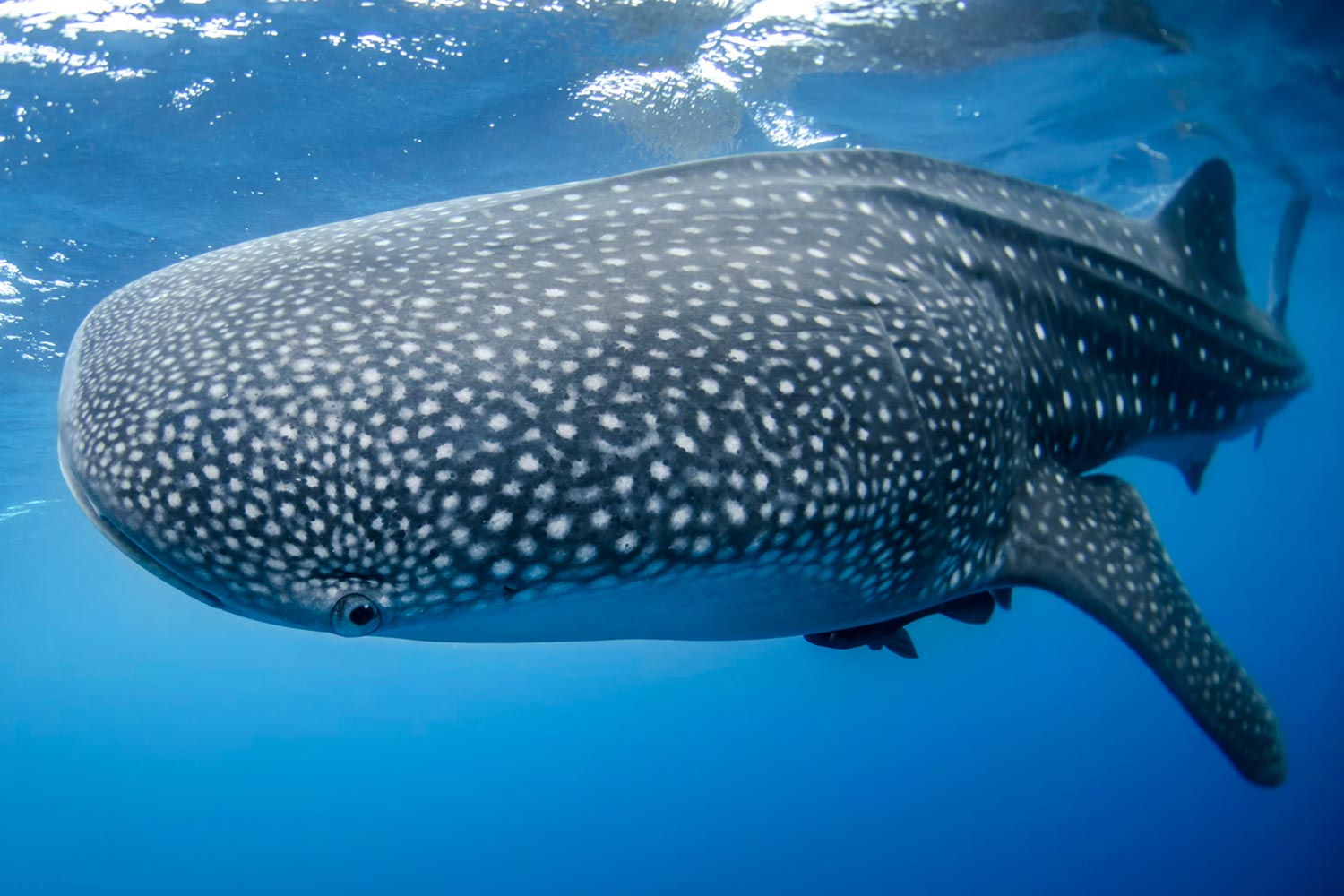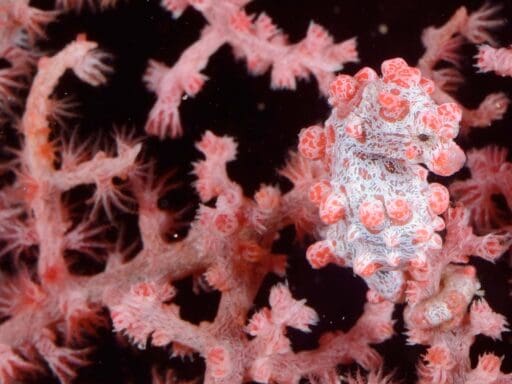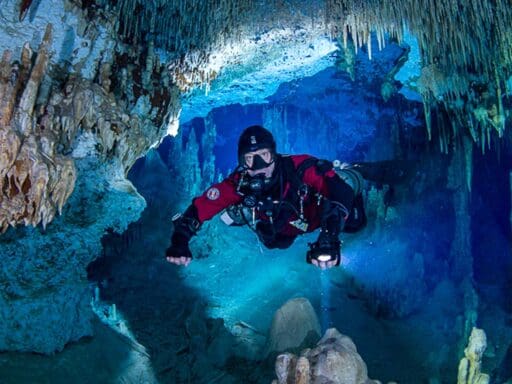The incident, which occurred on March 31 at Richelieu Rock, a renowned diving location within Mu Koh Surin National Park, was captured on video and shared widely online.
In the footage, a group of divers can be seen trailing a whale shark from behind, with one diver reaching out to touch the animal’s tail. Another member of the group is observed pointing a finger at the diver, seemingly cautioning against the action, as reported by The Thaiger website.
The video and accompanying images quickly circulated among local travel agencies in southern Thailand, prompting discussions about responsible tourism and wildlife conservation. The DNP took action in response to the incident, issuing a fine to the diver involved.
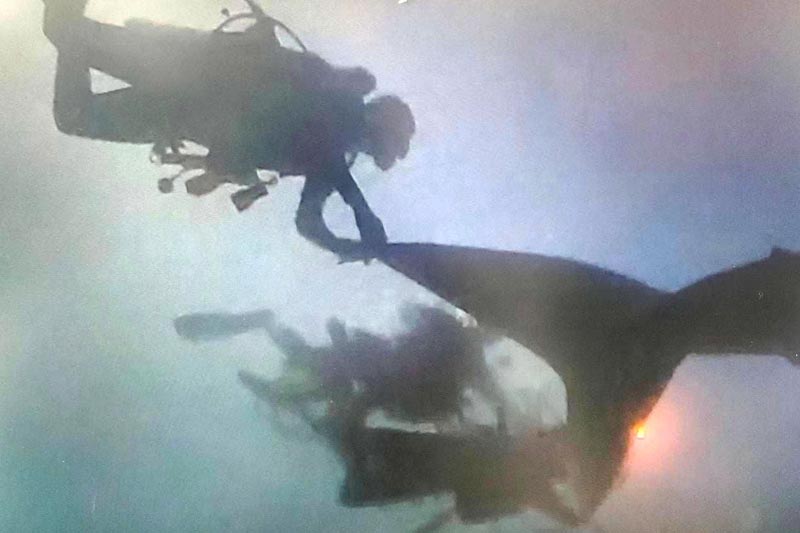
The touching of marine wildlife, particularly protected species like whale sharks, is a contentious issue in the diving community and among environmentalists.
Whale sharks, the largest fish species on Earth, are gentle giants that filter feed on plankton. These majestic creatures are classified as vulnerable by the International Union for the Conservation of Nature (IUCN) due to threats like habitat loss and accidental entanglement in fishing gear.
Swimming with whale sharks is a popular tourist activity in many parts of the world, but it’s crucial to do so responsibly. Divers and snorkelers should always maintain a safe distance from whale sharks and avoid any actions that could startle or harm them.
Responsible tourism operators brief participants on proper etiquette when encountering these gentle giants, which includes maintaining distance and avoiding flash photography. By following these guidelines, tourists can enjoy the awe-inspiring experience of seeing whale sharks in their natural habitat while also helping to conserve these remarkable animals.
